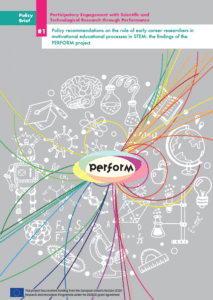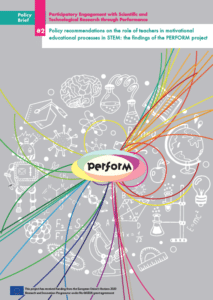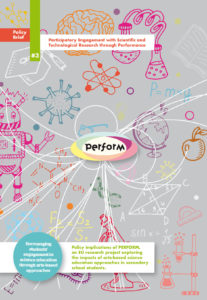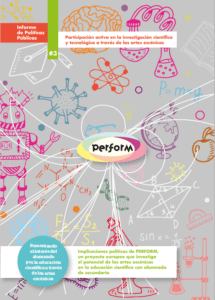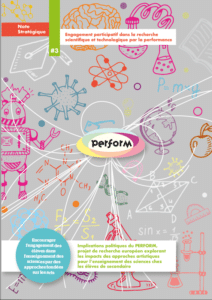Policy brief #1 offers, and make the case for the need for, policies to include early career researchers in new educational processes to motivate, inspire, and encourage reflection from young people, based on the findings and values of the PERFORM project.
Policy brief #2 offers, and make the case for the need for, policies to include secondary school teachers in educational processes to motivate, inspire, and encourage reflection from young people, based on the findings and values of the PERFORM project.
Policy brief #3 is based on the assessment of the educational process generated through the participatory workshops developed by the PERFORM project in schools.
The evidence collected in PERFORM points to the great potential, under specific circumstances, of performing arts to address the human dimension of scientific inquiry and to emphasise positive experiential aspects of learning. Such aspects can create new rapports of students with science –making it closer to students’ lives, experiencing science learning as something enjoyable, or making them feel more comfortable and confident, and in return, enhance their motivations and interests to learn about it.
UNESCO Position Paper on performance-based approaches to science education is based on its experience with thePERFORM Project.
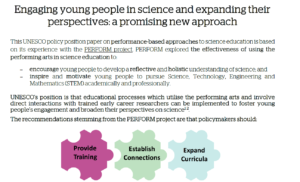 Engaging young people in science and expanding their perspectives
Engaging young people in science and expanding their perspectives

